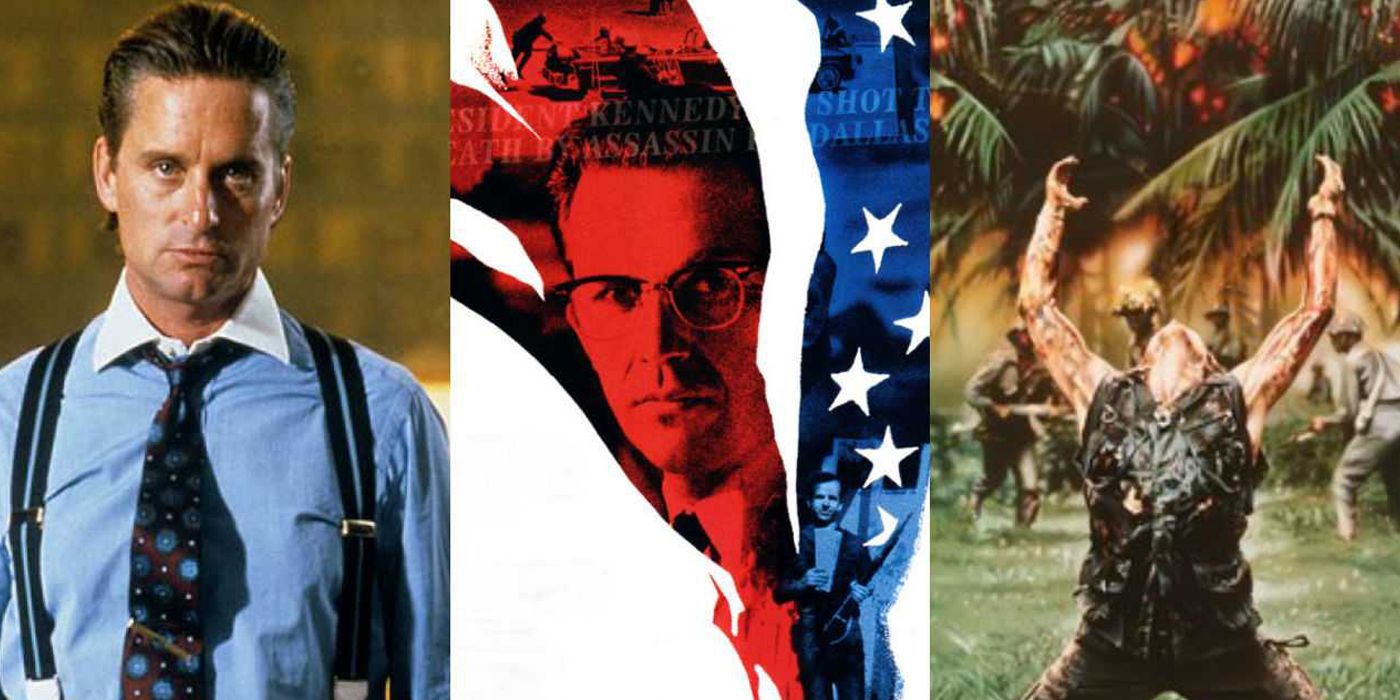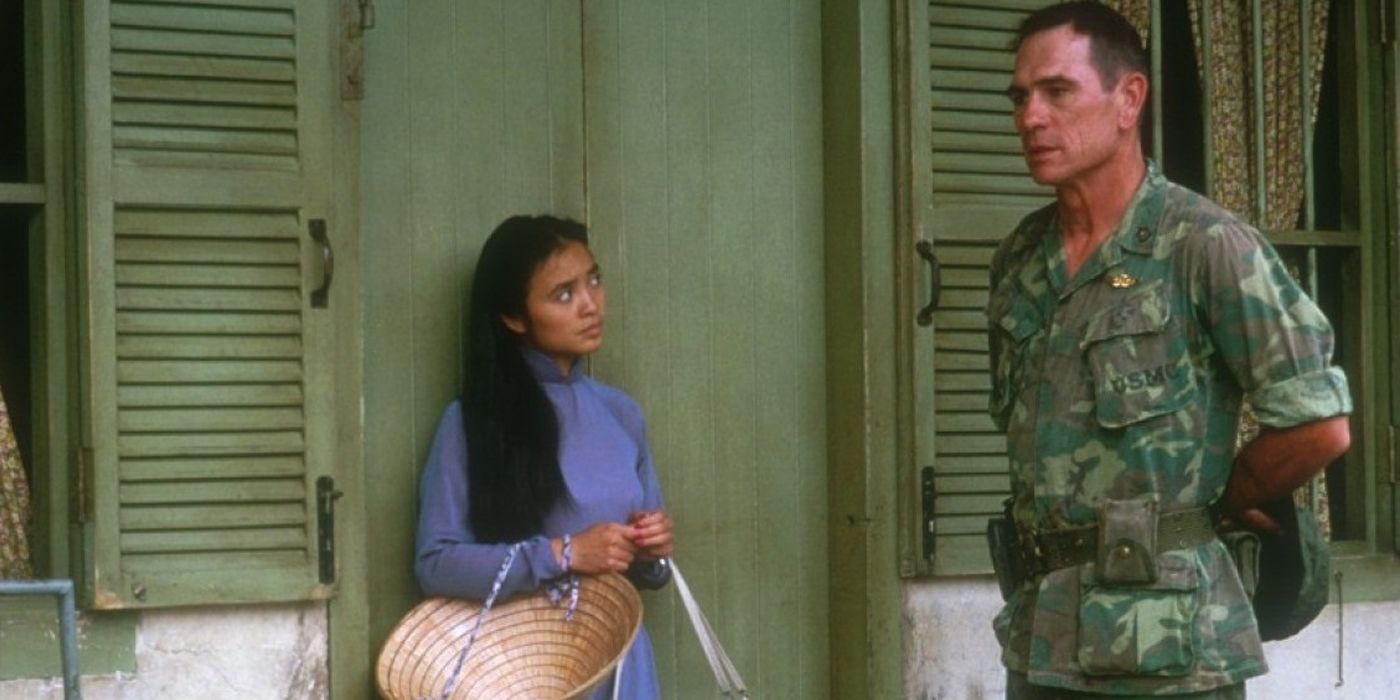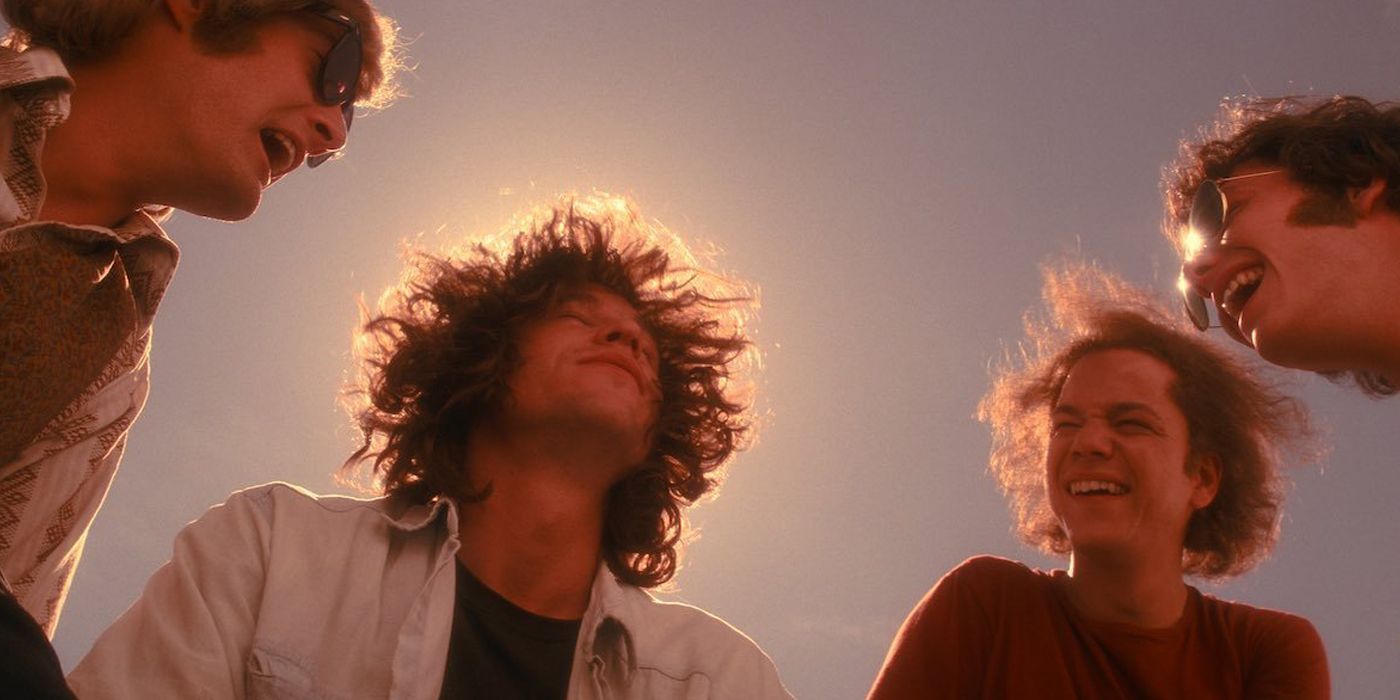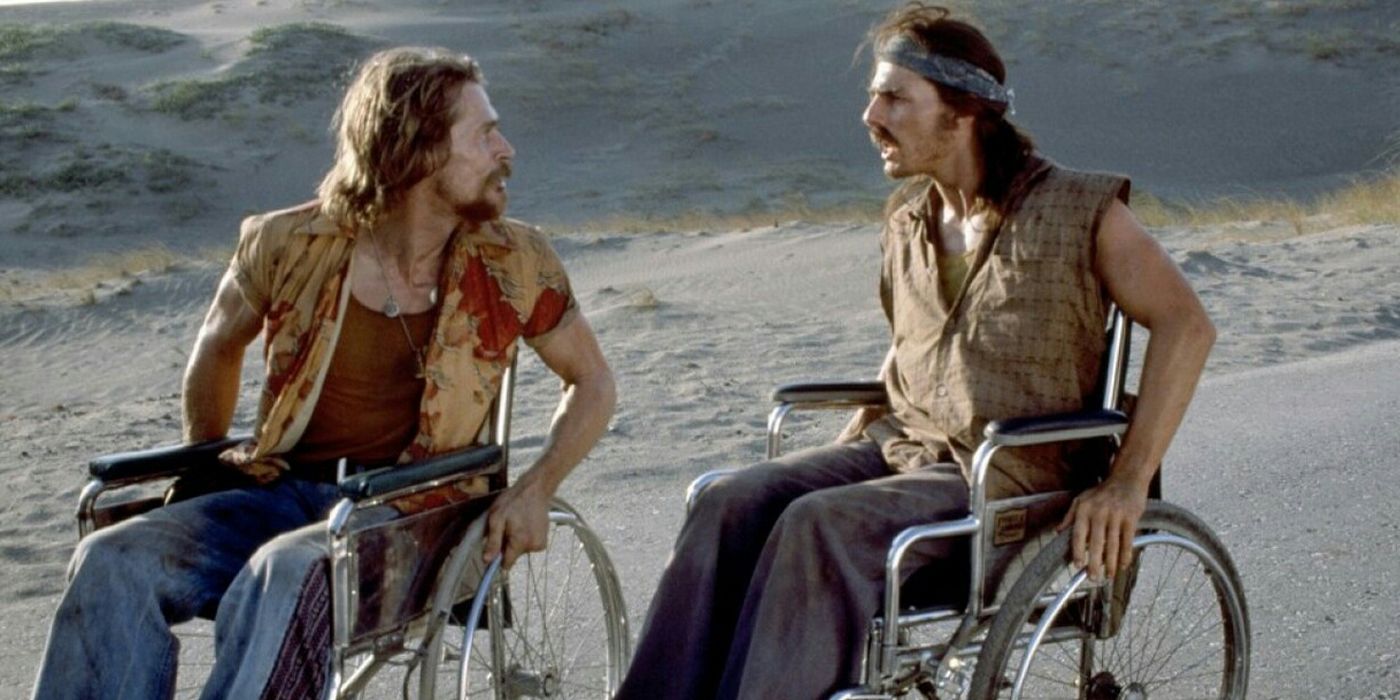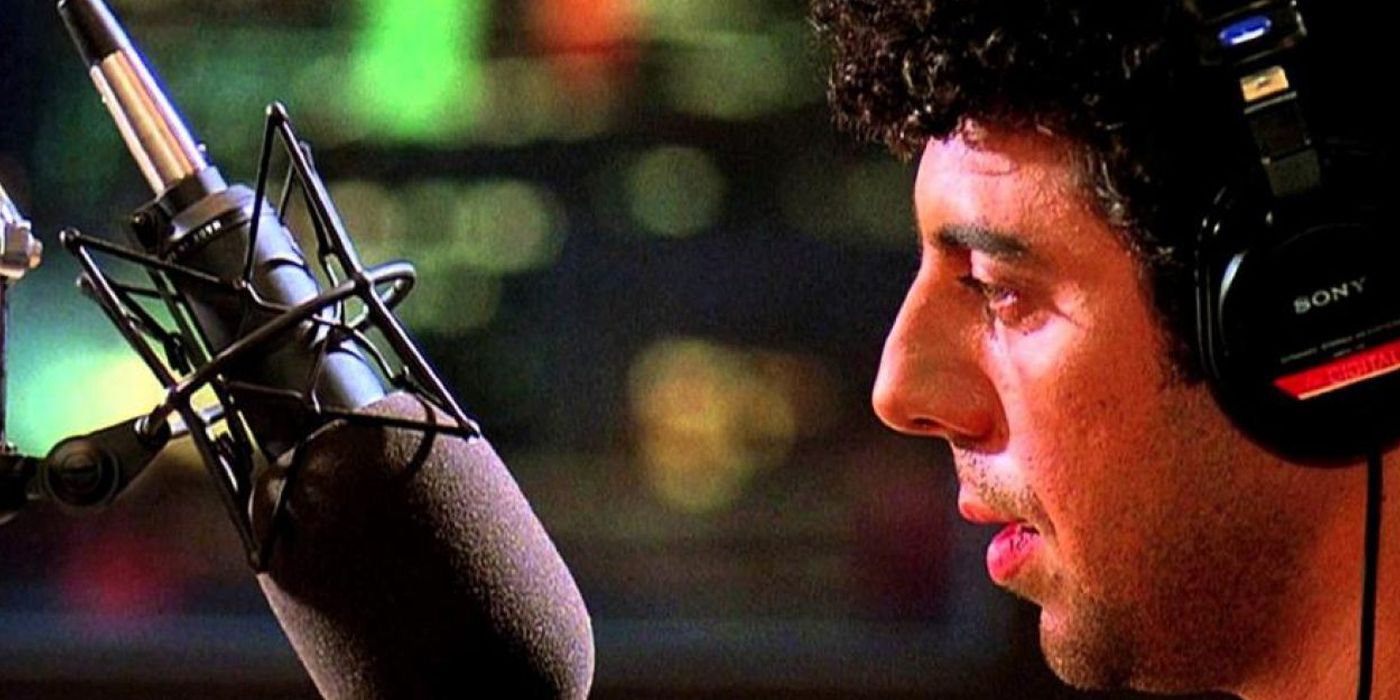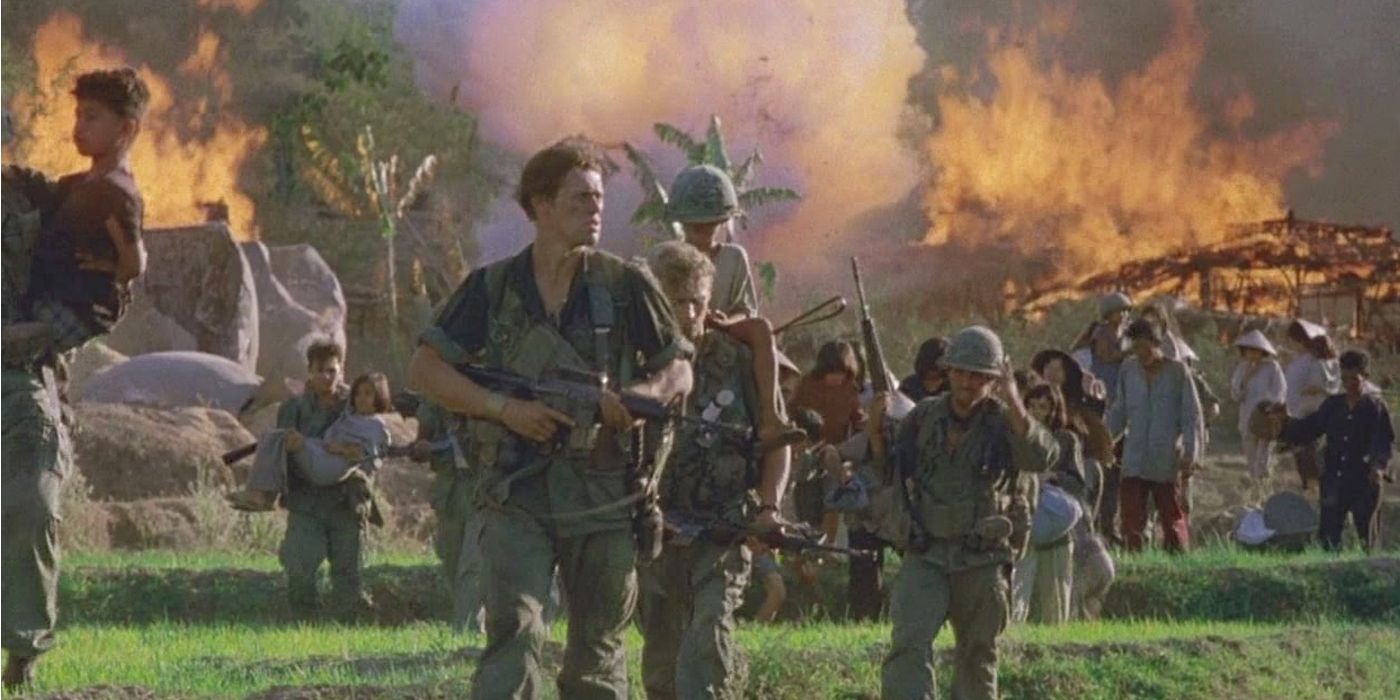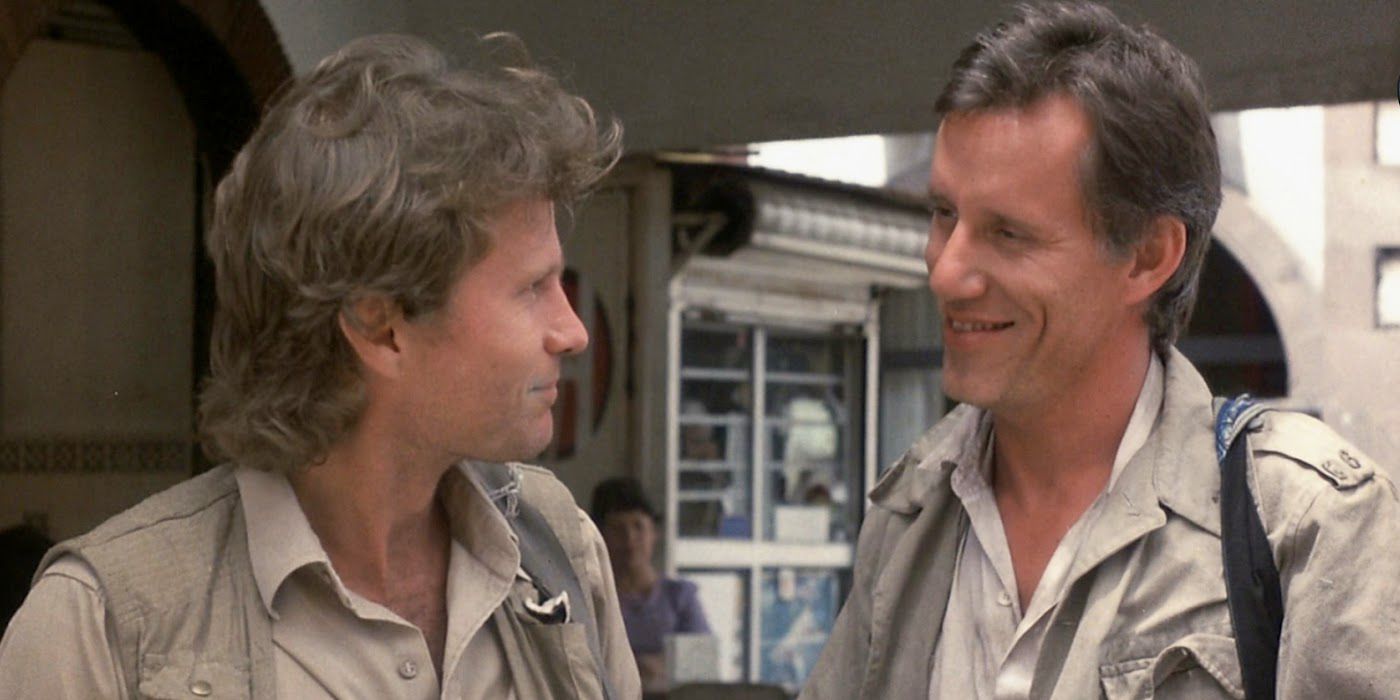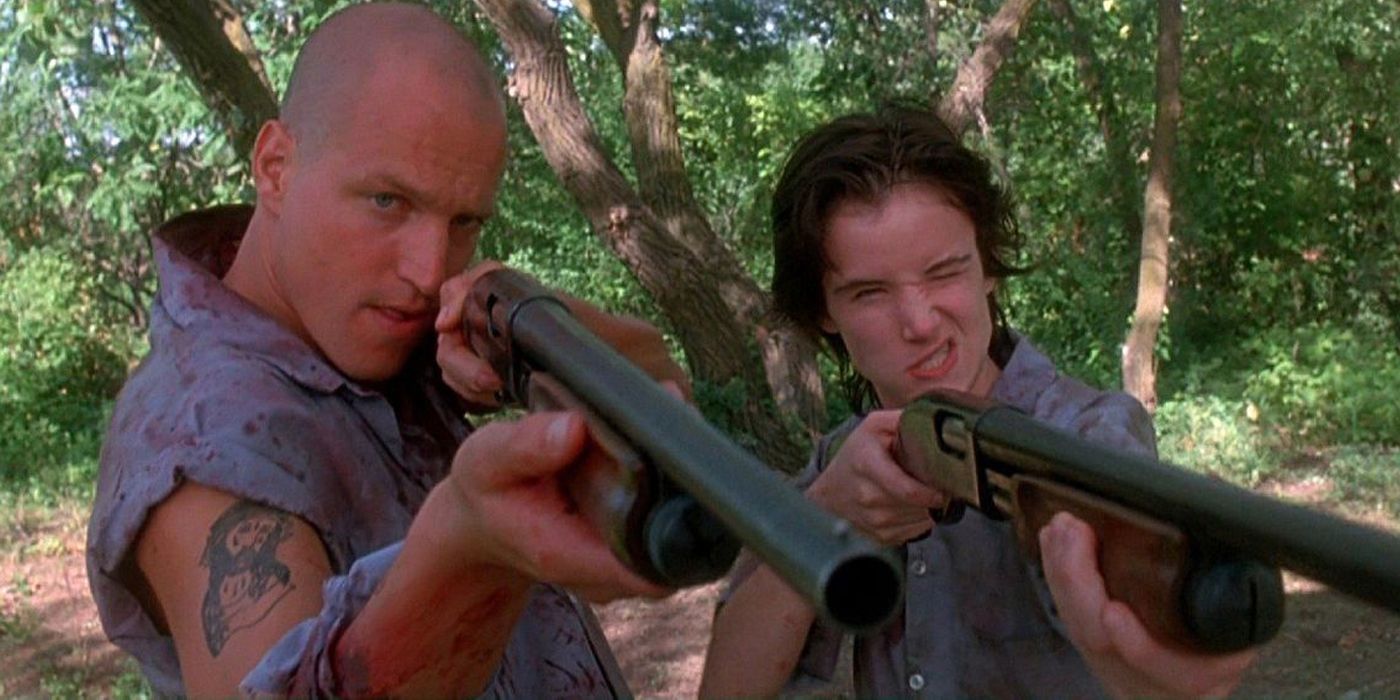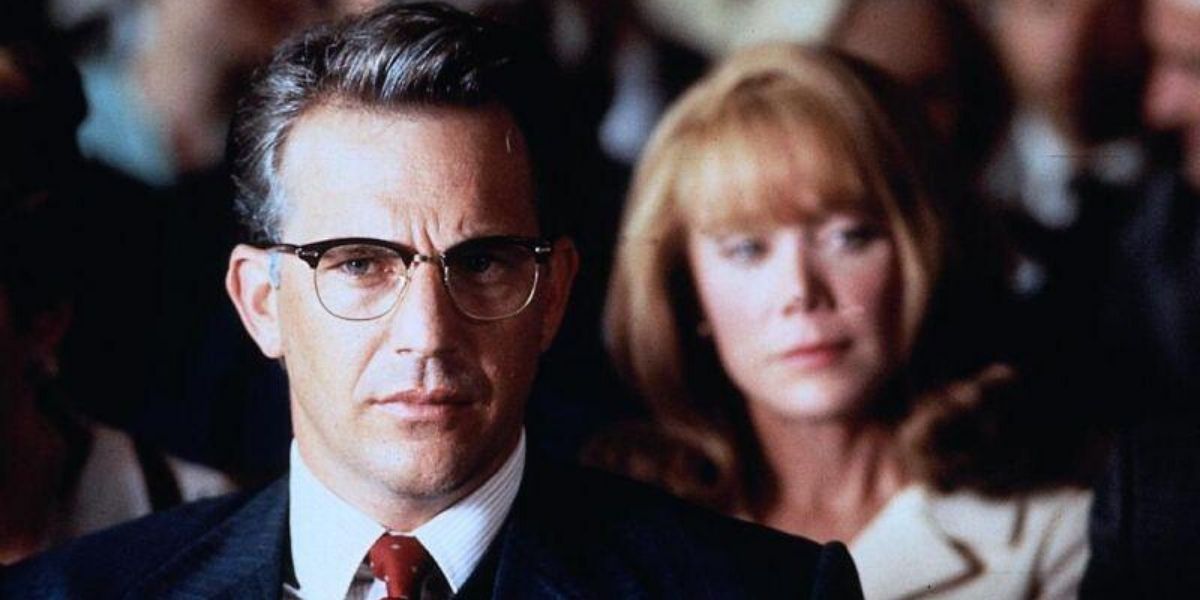Considered to be one of the most important (and sometimes controversial) filmmakers working, Oliver Stone has a powerful filmography. The filmmaker began as a screenwriter, winning the Best Adapted Screenplay Oscar for 1978's Midnight Express. Stone spent the next six years trying to sell his script for Platoon to uninterested studios, finally making the film in 1986. The success of that film led Stone on an incredible streak as a filmmaker.
Oliver Stone takes honest looks at America and examines its hypocrisies. He is the foremost cinematic authority of Vietnam, examining the war over many films. Equally praised and criticized, Stone's body of work is one of the best by any American filmmaker.
Heaven & Earth (1993)
Oliver Stone had already won Oscars for his two previous Vietnam films, Platoon and Born On the Fourth Of July. For the third film in his Vietnam trilogy, the director chose to show the effects of the war from another perspective. Heaven & Earth tells the true story of Hiep Ti Le, a Vietnamese woman whose life and family is affected by the war in her country. Le meets and marries a suicidal G.I. (a powerful Tommy Lee Jones) and begins a life in America, only to find that she is not accepted among the suburban housewives and struggles to find her place in a foreign land.
Le Ly Hayslip gave a moving lead performance and the film, while not embraced by the public, is an emotional and empowering tale of one woman's journey from youth to womanhood during a tumultuous time.
Nixon (1995)
Taking on the political career of Richard Nixon was a risky project. A three-plus hour film about the controversial president was unsure in its box office potential, as audiences usually favor fictitious presidents over true stories. Oliver Stone knew a proper story had to be told and created a fascinating portrait of the emotionally scarred man who would become (at that time) the country's most controversial leader.
Anthony Hopkins starred as Nixon and pulled off an amazing and Oscar-nominated performance using his great skills and rightfully staying away from too many prosthetics. Hopkins embodies every part of this broken man who clings to political life although his career is flatlining. With a strong supporting cast that included Joan Allen, Powers Boothe, and James Woods, Nixon was a well-reviewed and masterful drama that found an audience thanks to its director's unique vision. Stone didn't make Richard Nixon a villain nor a hero. He showed the man that was, flaws and positives, in a non-judgemental and striking film.
Wall Street (1987)
Stone took on another type of "battleground" in Wall Street. Charlie Sheen stars as "Bud Fox", a young Wall Street broker who will stop at nothing to achieve success and to "catch the big fish," a job working for a financial titan named Gordon Gekko.
Stone's grandfather was a Wall Street broker, so the filmmaker had insight into that world. Coupled with that knowledge and the greed mentality of the 1980s, the film was a financial success, speaking to the times in which it was filmed. Michael Douglas finally joined his father in being an Oscar winner due to his committed performance as Gordon Gekko.
The Doors (1991)
The Doors was the first of Oliver Stone's one-two punch of 1991 with JFK to come later in the year. Stone's recreation of the late 60s was jaw-dropping in its scope and accuracy and the cast he assembled to play The Doors was perfect.
Kevin Dillon, Frank Whaley, and Kyle MacLachlan were impeccable as the band and Val Kilmer was phenomenal as Jim Morrisson. His performance was eerily perfect, as if the ghost of Morrisson was flowing inside him. The film earned mixed reviews, but did good at the box office and stands as a testament to one of music's most unique artists and bands.
Born On The Fourth Of July (1989)
Tom Cruise rose to another level with his moving portrait of Vietnam Veteran Ron Kovic in Born on the Fourth of July, Oliver Stone's Oscar-Nominated adaptation of Kovic's true story. Kovic fought in the Vietnam war and came home a changed man who took an anti-war stance, becoming one of the most important voices to speak out against America's involvement in Vietnam.
Tom Cruise received the best reviews of his career and the film was a box office hit, earning eight Oscar nominations and winning two for editing and Stone's direction.
Talk Radio (1988)
Perhaps the most undervalued film of Oliver Stone's career, Talk Radio was the director's sharp and intimate adaptation of Eric Bogosian's play of the same name about a radio talk show host who begins to unravel due to the hatred of humanity that he encounters on his program.
Bogosian plays the lead, Barry Champlain, and is a force of nature with his performance. The actor and the film burn across the screen like a cinematic flamethrower. Stone's direction matches Bogosian's lightning-like cadence, searing the film's potency for the audience. A box office flop in 1988, Stone's film and Bogosian's performance received great reviews.
Platoon (1986)
Oliver Stone made his mark with 1986's Platoon, based on his personal Vietnam experience. The film followed Chris, a new soldier who comes to Vietnam and falls in with a platoon where he becomes caught in a moral battle between his two superior officers.
Nominated for eight Oscars and winning four including Best Picture and Best Director, the film was a huge critical and financial success, making stars out of Charlie Sheen, Tom Berenger, and Willem Dafoe (who were both Oscar-nominated) and changing the way Americans and cinema dealt with the effects of the war, allowing for deeper national understanding.
Salvador (1986)
Salvador was Oliver Stone's true tale of Richard Boyle, an American photojournalist who covers and becomes affected by the political unrest of 1980 El Salvador.
James Woods starred as Boyle and did career-best work with his unhinged and emotional portrayal of a man in too far over his head both politically and professionally. Stone's screenplay is a viciously honest critique of America's unholy union with dictators and many critics placed the film on their year's best lists. Woods' performance and Stone's screenplay were rightfully nominated for Oscars.
Natural Born Killers (1994)
Controversial and completely unique, Natural Born Killers exploded across movie screens in 1994 to big box office results and mixed reviews. Stone's film followed Mickey and Mallory, two vicious serial killers who become media celebrities.
Stone reworked Quentin Tarantino's original screenplay and molded it into a timely attack on media culture and unhealthy hero worship. Woody Harrelson and Juliette Lewis gave two of the finest performances of their respective careers and were supported by a strong supporting cast. Stone's inventive and experimental style made for wild behind the scenes tales on the making of the film.
JFK (1991)
Oliver Stone never garnered more controversy than he did with JFK, his indictment of the lies and injustice regarding the investigation into JFK's assassination. The scope of the film and the information it holds is quite astonishing. Kevin Costner stars as Jim Garrison, the attorney who takes on the U.S. government, giving what is perhaps his deepest and most personal performance.
Tommy Lee Jones, Joe Pesci, Kevin Bacon, and Sissy Spacek are among the many supporting actors portraying real-life characters who were involved in one way or another. Donald Sutherland has the film's most important role as an unnamed government agent who lays out the reasons behind the plan to kill Kennedy. Nominated for eight Academy Awards, the film won two for editing and cinematography. Whatever side of the controversy the viewer is on, it cannot be denied that Stone's masterwork is one of the most important American films ever made.

